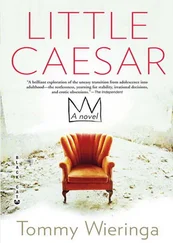‘And what about him?’ Beg asked.
‘Him? He just lies there.’
‘Have they had anything to eat?’
‘They’re lying here just the way they were brought in. Nothing different.’
‘They haven’t eaten anything?’
The guard glanced at his watch. ‘They only came in a couple of hours ago.’
Beg looked them over. Multiple pairs of trousers tied with cords around their skinny loins. Around their emaciated necks he saw the collars of numerous T-shirts and sweaters — all frayed ends, rips, worn patches. But they had survived the cold.
They gave off a bitter stench.
An automatic pistol rattled on the shooting range. Beg turned in annoyance. ‘Tell them to cut out that noise.’
His gaze wandered over the rags, the filthy hands and faces, the sight of their shoes. The shoes, lashed together with bits of wire and rope, had almost rotted away on their feet. The shoes told him that they had undergone deprivations that were different from those of the city’s homeless — deprivations in the wilderness. Had the cold forced them into town? Were they a family? What did they have in common?
‘Who are you people?’ he said under his breath.
The automatic fire stopped. The men were sick, febrile; he could hear their laboured breathing.
When the guard came back, Beg left the cell. He looked through the peephole in the door of the next cell. ‘You’re kidding me,’ he said.
The guard looked up.
‘I thought he’d gone home already,’ Beg said.
‘Him? No, the gentleman’s still keeping us company.’
Beg looked again at the man in the cell. He was lying on his cot, his hands folded under his head.
‘That’s too damn bad,’ Beg said.
‘Were we supposed to let him go? I didn’t see any release papers.’
‘He can go,’ Beg said. ‘Then he’ll be home for Christmas.’
‘Barefooted. They took his shoes.’
‘Who?’
‘The drifters. They stuck him in the neck with a pen, and stole his shoes.’
To his own amazement, Beg remembered those shoes — fancy white sneakers. A wild surge of annoyance almost made him change his mind about sending the man home. He took a deep breath. ‘He can go,’ he said. ‘Make sure he has enough money for a bus ticket home.’
In the next cell, a boy was sitting on a cot. His cellmate, a man, was asleep.
‘Well, young man?’ Beg said.
The filthy boy’s eyes spat fire. There was more life in him than in the others; no doubt about that. His hair stood straight up on his head, like an emaciated lion cub’s.
‘My name’s Pontus. What’s yours?’
The boy sniffed loudly and stared at his toes.
‘I bet you’re kind of hungry,’ Beg said. ‘I’ll have them bring you something to eat. What do you feel like having?’
The boy’s eyes lit up. Then, right away, he hugged his knees in shame and bowed his head, hiding his wide-open, traitorous eyes.
His cellmate had razor-sharp features beneath his dingy beard. His teeth were chattering.
In the corridor, Beg said: ‘Bring them blankets and food. And where the hell is that doctor?’
‘Was the doctor supposed to come? I never heard anything about that.’
‘Where are your brains, man?’
Behind the last door was a woman. ‘Help me,’ she said.
She had her forearms wrapped around her belly. Beg was relieved to hear at least one of them speak a few words. ‘How can we be of assistance?’ he asked with exaggerated politeness.
She was sitting hunched over, tears cutting trails down her smudged cheeks. ‘Help me.’
Beg looked over his shoulder at the guard. ‘What’s wrong with her?’
The guard shrugged. ‘She says she’s pregnant. But I can’t really believe that. I mean, you tell me …’
CHAPTER TWENTY-SEVEN.Gushing and bursting, everything comes to the fore
‘Now that’s good news, Pontus,’ Semjon Blok said on the phone. As he spoke he seemed to be doing something else — something that required effort, with the receiver clenched between shoulder and chin so that the rest of his body could go on with it. ‘That’s what I pay you for, for good news.’
Beg couldn’t tell him who they were or where they came from; they had barely spoken a word yet.
‘So they’re not talking? Is that what you’re saying, Pontus? Foreigners, man, they don’t understand you. That’s the problem with people like that. In their own language they might even be kind of useful, then you can at least tell them to do something, but otherwise … Picking bell peppers, that’s about as far as it goes.’
In the background, he heard a man laugh. When you’ve got power, Beg thought, you always make people laugh. Koller and Oksana often laughed at things he didn’t mean to be funny.
‘You’re not much of a talker either, are you, Pontus? Maybe we should go fly-fishing sometime, you and me, get to know each other better. What do you think?’
‘I’m not much of a fisherman.’
‘It’s not just about the fishing — it’s all the other things that go with it,’ the mayor said. ‘I know the best spots. Trout, man, you’ve never seen anything like it. You ought to see me, hooking one after the other. Those guys who go in for sport fishing, we make them look like amateurs, I’m telling you. Or are you more of a hunter? You go in for the heavier artillery? Then we’ll go shoot a bear. You ever shoot a bear, Pontus?’
Beg wondered what the mayor was up to the whole time. Was he chopping wood with his free hand?
‘I’ve never shot a bear,’ he said.
‘Aw, man, I’ve shot so many bears, I’ve lost count. I just might be the best bear-hunter you ever met. I can think like a bear, you know. You have to be patient. Waiting. Waiting. And then waiting a little more. You’ve only got one chance to squeeze off a shot. A bear’s a lot more dangerous when it’s wounded. Where do you think you have to hit him, in the heart or between the eyes?’
‘In the heart, I guess.’
‘Yeah, okay, but where do you have to hit him — you know that, too?’
‘I don’t know anything about bears.’
‘Okay, but where do you think you have to hit him?’
Beg said nothing. He looked out the window, at the narrow alleyway between two buildings. One single step, that’s how long a passer-by lasted.
‘So, Pontus? Tell me the first thing that pops into your mind. Just say it.’
‘A man’s life between heaven and earth is like a ray of light falling through an opening in a wall: one moment, and then it is gone.’
‘What’s that?’
‘Gushing and bursting, everything comes to the fore; slipping and flowing, it all recedes. One change and he is alive; another change and he is dead.’
‘Have you been drinking, Pontus? I’m asking you where you have to hit a bear.’
Beg glanced at the receiver. ‘I’d hit him straight from the front. In the chest.’
‘Wrong!’ Blok crowed. ‘That’s what everyone says who’s never shot a bear before! From the front you’ve only got a 15-to-30 per cent chance of taking him out right away. Then you’re in trouble, buddy. Aim for the shoulder, above the front leg. Left or right, makes no difference. The chest cavity — heart, lungs, all at one go. Boom, bagged another one!’
Semjon Blok was his own standing ovation, Beg thought after they had hung up. He produced his own applause in deafening quantities. One ear to bellow his triumph into — that was all he needed to be happy. It was an extremely unpleasant thought, to go fishing or hunting with this man who ‘knew the best spots’. And what did he mean by ‘all the other things that go with it’? He sounded like a goddamn faggot.
It was snowing slightly: light, monotone grey. Oksana came in with his lunch — noodles and meat, and a glass of kvass. ‘No pork,’ she said. She had accepted this minor dietary law as one of his eccentricities. To show that he had heard, Beg looked up from the notepad on which he was drafting a letter.
Читать дальше











